13 Ultimate Tomato Farming Tips In Nigeria
Tomato farming in Nigeria is a very lucrative business because of the high need for tomatoes. We are discussing the 13 ultimate tomato farming tips in Nigeria.
Tomato as we all know is a very essential crop used in the preparation of most of our Nigerian dishes, ranging from Stew to some soups to our very own Nigerian Jollof. All these dishes won’t be complete and tasty without Tomato in them. The uses notwithstanding, how many consumers know how to farm Tomatoes and how many tomato farmers farm it well to its best potential?
Tomato is a warm climate-loving plant mostly farmed in the northern parts of Nigeria but now due to irrigation technologies, it can be farmed even in the South. Tomatoes are all-year-round crops that take 60 to 80 days to be harvested, making it possible to be farmed 5 times a year.
We believe by the end of this post you will be placing orders for your seeds, seedling trays, and labor to make your land ready for you to start farming tomatoes all by yourself because you will get the ultimate tomato farming tips from us. But before that let’s discuss the types of tomatoes because they vary.
Types of Tomatoes
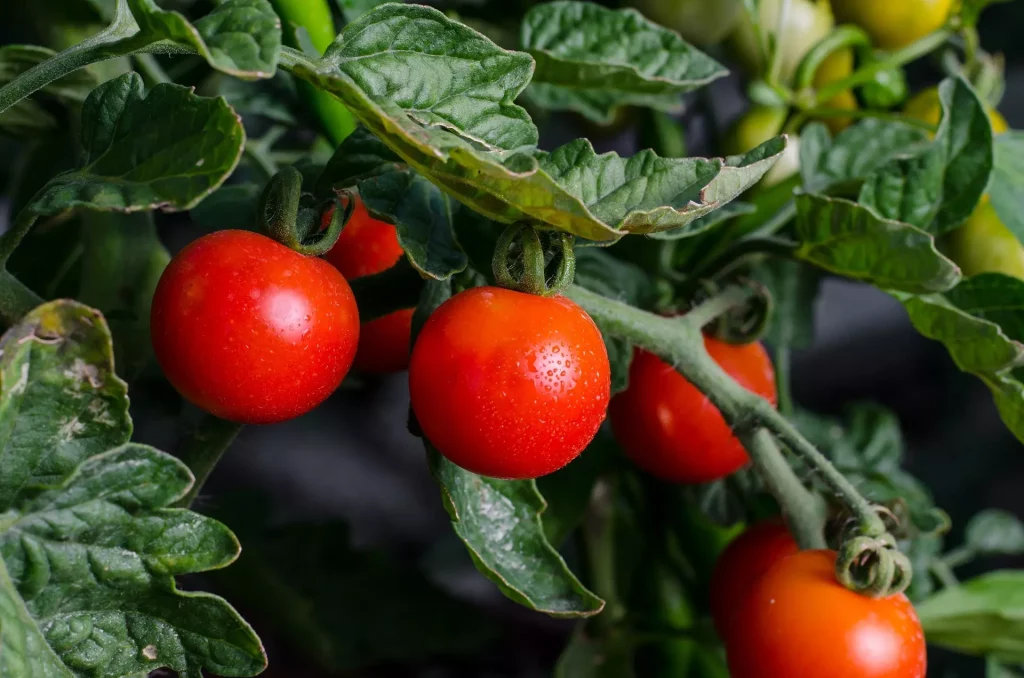
Many times tomato farmers make yield less than their investment cost because they were unaware of the type of tomato they purchased. There are two types of tomatoes, they are:
- Determinate Tomatoes
- Indeterminate Tomatoes.
Determinate Tomatoes are tomatoes that only yield fruits in short periods and then stop fruiting. The timing is genetically stationed, but the quantity produced during this time is massive. And the quality is very good for canning, paste and sauce.
If you are a farmer with small land and you have an intention of farming tomatoes, this type of tomato would be the best as it has fewer leaves than the next type of tomato we would be looking at. Examples of determinate tomatoes are PlatinumF1, San Marzano, CobraF1 and Amish paste.
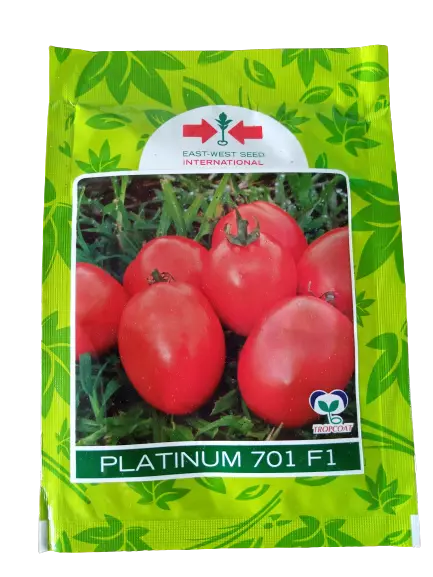
Indeterminate Tomatoes are another type of tomatoes. Known for their nonstop production and large leaves which make them suitable for only large farms, Indeterminate tomatoes are popularly known as vining tomatoes. Beef steak, Big boy, and Sungold are one of the most popular indeterminate tomatoes in Nigeria.
Now that we can distinguish tomatoes, let’s move to discuss the 13 ultimate tomato farming tips in Nigeria.
The 13 Ultimate Tomato Farming Tips in Nigeria
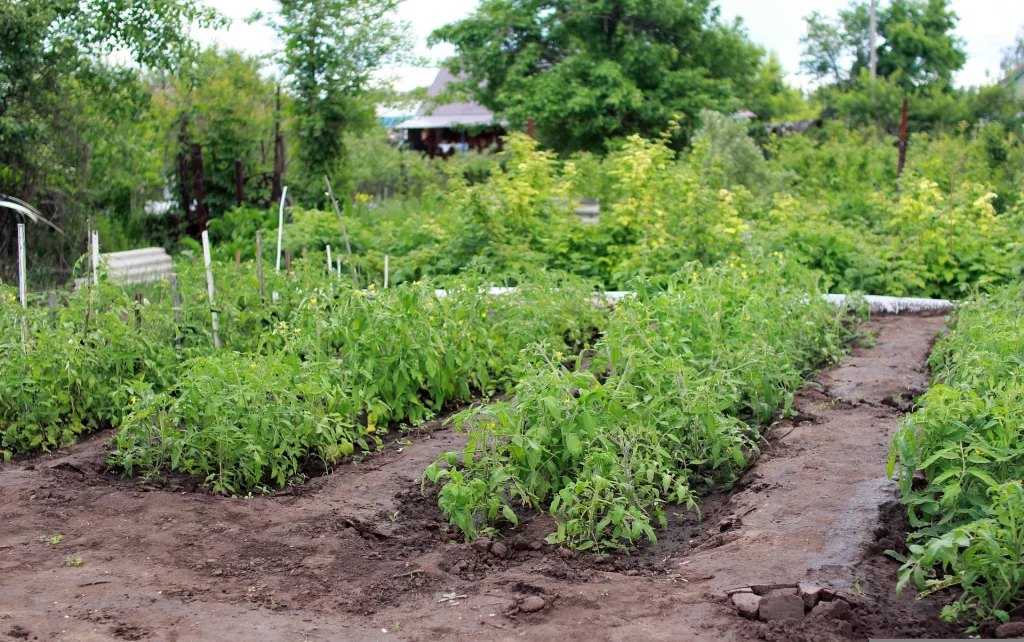
Okay, before we move further, we want to assure you that our information here has been researched and tried and tested true. Here they go:
1. Choose Good Seeds
Why some farms cry after farming tomatoes is because they just invested in tomato planting without taking time to research what seed would be equal to their expectations. Right now in the market, the most sold tomato seed is Platinum F1.
There are still other alternatives like Padma F1, Maxim F1, Cobra26 F1, Eva F1, and Rio-Grande. So take your time to choose seeds, don’t give into the use of seeds of already used seeds (I.e the seeds in the already planted tomato) as they might be lower in quality. Some farmers even advise farmers to go for Roma seeds. So do well to check out Platinum F1 and Roma seeds.
2. Prepare Nurseries
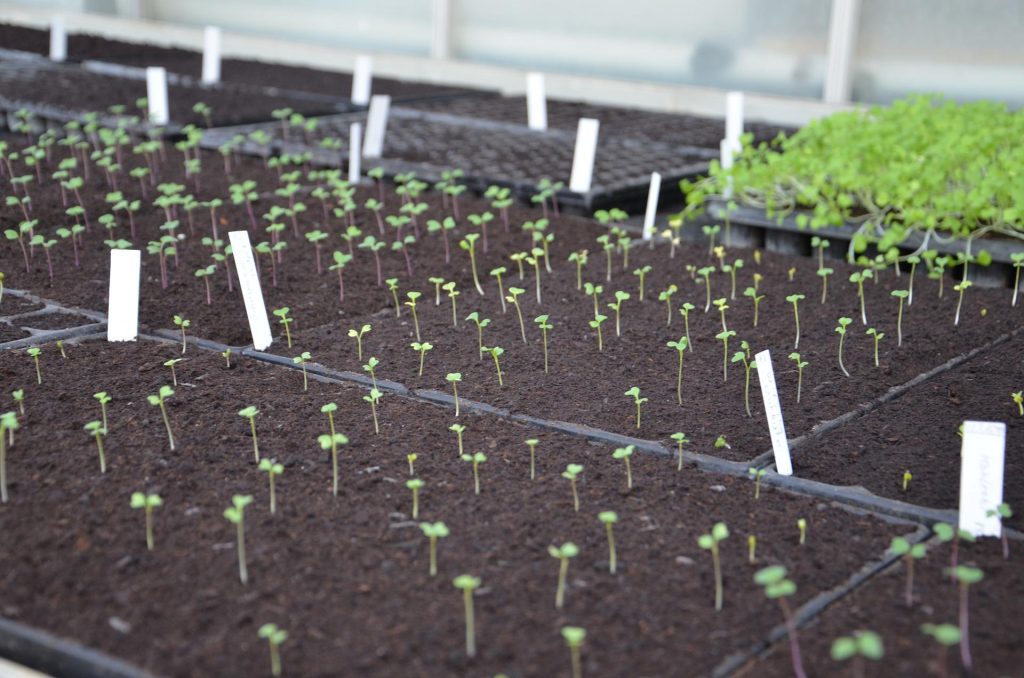
every great sprinter even likes our very own Tobi Amusan, started by crawling, Same also is tomato farming. You have to start with nursery beds either indoors or in your garden.
After probably 24 days the seeds you would sow in the next step would be ready for transplant. So the nursery beds are temporary. For perfection, we would advise that you use cocopeat or seedling trays.
3. Sow and Nurse
After you have prepared the nursery beds the next right thing to do is to weed and apply fertilizers 5-6 days before sowing. After 4 weeks of germination, the next step is to select land and then transplant.
4. Select your farming land
This is the part that you have to be very careful and pay keen attention to. Firstly the land you should go for must have at least 6 hours of sunlight. With that, we move to the second land selection requirement, pH. Tomatoes don’t grow well in acidic soils anything less than 6 on the pH scale is a big no, same also is anything above 7 pH.
Therefore we won’t be wrong to say that tomatoes are neutral plants. The third requirement is the moisture of the land. The land should be moist but not soaked. And lastly, loosen the soil to at least the depth of.
5. Transplant
From the 24th day of planting( when it’s about 8 to 10cm tall), the tomato seedlings are ready for transplant from the nursery bed to the permanent site. So how do we transplant? Here are some tips. Firstly, plant within an hour after removal.
Two, after the removal of the seedling, dip the root into pesticide, to kill fungi and pests. And thirdly, transplant during early mornings and evenings.
Last and never least, water the ground very well after transplanting. It is worthy of note that before transplanting fertilizer (apply manure) to the soil 20 days before time.
6. Water your Tomatoes
Although farmers say that tomatoes don’t like too much water, and because of this they prefer farming in November to February, tomatoes’ soil needs water to produce juice fruit. And because of this drip irrigation is the best for tomato farming as the leaves are excluded and only the soil is watered to avoid foliar infection.
Therefore because of this, we advise every tomato farmer who wants a high yield to make provisions for steady water through the creation of boreholes or well that have pumps for easy irrigation. And to make your work easier, also connect the venturi to the irrigation pump, so that the water can be nutritious.
7. Weed Regularly
the success of tomato farming doesn’t solely depend on the species of tomato seeds being farmed but also on how effective the maintenance was. Regular weeding is a must-do in tomato farming. This is because pests like grasshoppers and bush animals feast on tomato plants a lot and also protect them from some diseases like bacteria blight, Fusarium and other fungal and bacterial diseases.
8. Stack your tomatoes
stacking means using vertical support to hold a tomato plant or plants in other to have more yield. Our discussion on the 13 ultimate farming tips in Nigeria would be incomplete without adding stacking. Stacking allows the increase in dining and access to better sunlight and avoids the fungal infections of the leaves as they won’t be touching the moist soil.
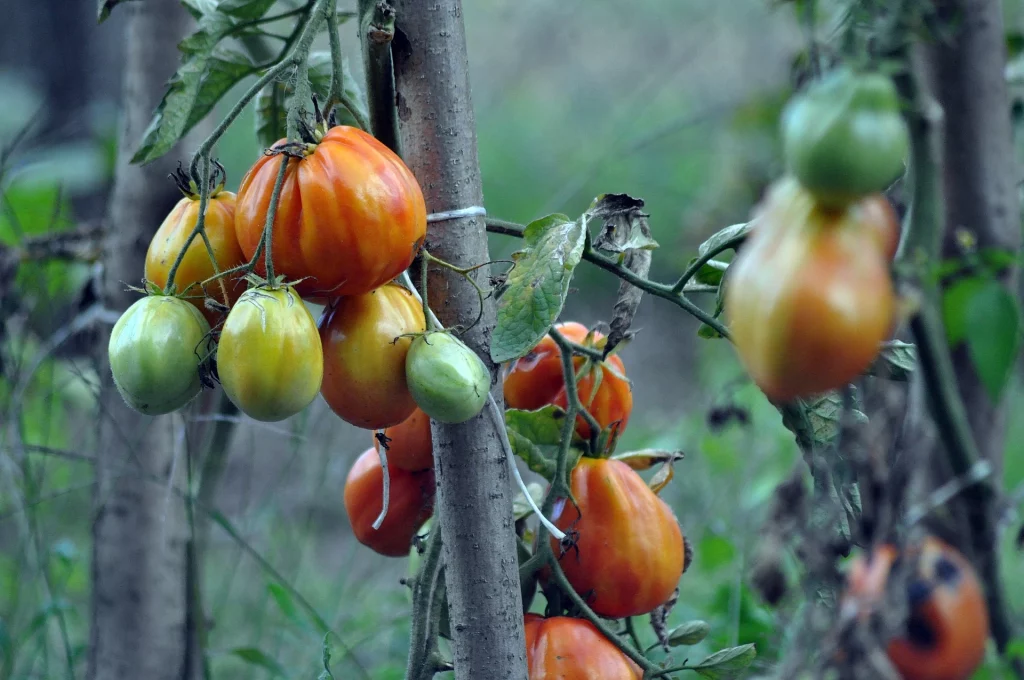
9. Tomatoes hate high nitrogenous fertilizers
it would be heartbreaking to lose your farm to the effects of fertilizers. Tomatoes hate High nitrogenous fertilizers. As the application of a lot of nitrogenous fertilizers can lead to poor or no fruiting and flowering.
We would advise that you apply fertilizer rich in boron and calcium instead. Nevertheless whatever you add should be done by the soil test after the soil analysis.
Remember that we are still discussing the 13 ultimate tomato farming tips in Nigeria
10. Harvesting tips
By day 60 and above your tomatoes are ready to harvest. So here are some tips. Firstly, harvest them when they are not ripe to harvest fungal disease, rotting and cracking. Secondly, use a shear or scissors to cut the stem close to the tomato fruit to avoid damaging the plant during twisting. Then collect the tomato fruits using baskets and crates.
11. Beware of Pests
Tomatoes are too juicy to overlook therefore for this reason they have a lot of animals who can do anything to get your tomatoes, especially the ripe ones you have harvested. So set traps, guard your harvests like a mother hen. Use insecticide soaps to keep seeds away from your tomatoes.
12. When should I sell my tomatoes?
Tomatoes are best sold in Nigeria from April to July yearly. As the demand and cost are high thereby compensating for all the production costs and making you sell good cool cash.
13. Learn about the market
Before you rush out with your enthusiasm that your tomato is a game changer, try to get to know the market. Find out what type of tomato people go for, the price being sold there, and also study your competitors.
Storing tomatoes on the other hand is not an issue. Just make a space with temperatures of 10-15°C with high humidity of about 95mmHg, although storing tomatoes in Nigeria is quite difficult but this would do.
To learn more about the health benefits of tomatoes click here
Conclusion
Tomatoes are amazing plants because imagine our Sunday white rice being without the normal delicious tomato stew or our wonderful Jollof rice without the tomato paste, it would be a disaster for whoever eats it.
Therefore for these reasons, we would say that our discussion about “the 13 ultimate tomato farming tips in Nigeria” is very timely and we believe that you learned and got the tips you need to farm tomatoes perfectly.
Did you like these posts, you can learn more about other crops and their farming here at eucarlagro.com, for notifications of new posts click on subscribe. Feel free to comment and share with your friends. We hope to see you in the next post.
See also: How to Start Ginger Farming Business in Nigeria


![How To Start A Farm With No Money ([year]) How To Start A Farm With No Money](https://eucarlagro.com/wp-content/uploads/2022/08/ezgif.com-gif-maker-2022-08-19T064730.741-768x463.webp)

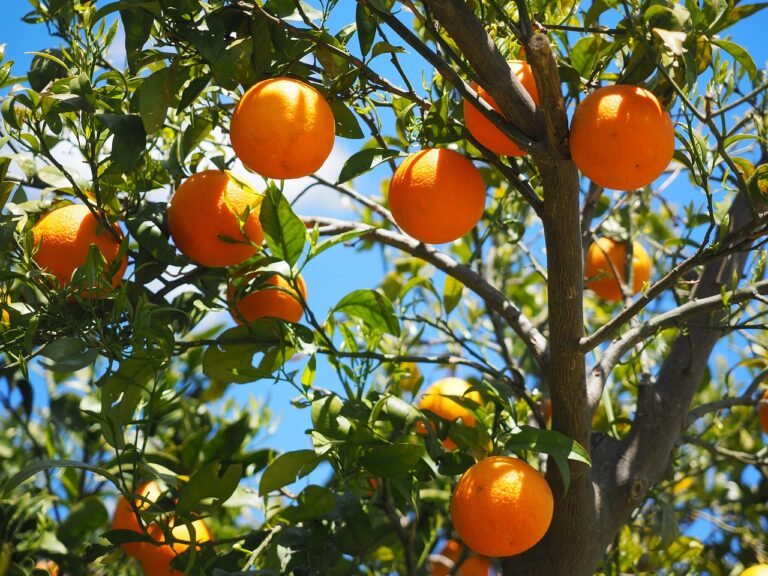
![How to Start Coconut Farming in Nigeria [Complete Guide] Coconut Farming in Nigeria](https://eucarlagro.com/wp-content/uploads/2023/11/Coconut-Farming-in-Nigeria.webp)
